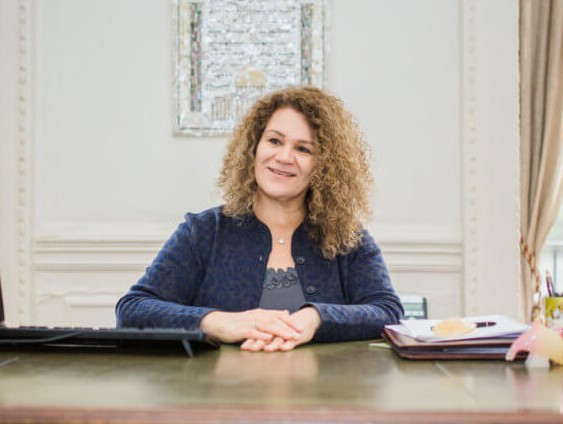Kate’s Story: Heavy & Painful Periods Were Ruining My Life
This is Kate’s story. She came to see us last year and has had a very positive health journey, ultimately resulting in an improved quality of life. Names have been changed, and patients have given permission for their story to be shared.
I have had heavy and painful periods for as long as I can remember. I have too many embarrassing stories of heavy bleeding at school, social events, or during sports to recollect. I remember talking to my mum about my heavy periods and severe cramps, and her response was that women bleed differently, and this was normal for me. So I lived with it and adapted, but every month for five days, I felt unable to function, was in a lot of pain and could make no plans. Most other women I spoke to agreed with my mum, it was the 80s, and to be honest, we probably have come some way since then as a society, but not nearly enough.
Three years ago, I went to see my GP to ask if there had been any advancements in medication, for example, that could help my heavy and painful period. Keep in mind, I still had no idea that this was not normal. I just wanted to make it easier. His response was dismissive at best and actually quite insulting. He essentially told me to get on with it and stop wasting his time.
Then two years ago, I came across a post on Instagram about endometriosis. I had never heard of this condition before. All the symptoms sounded exactly like what I was experiencing, and I had a lightbulb moment. I started researching and learning about the condition, and I took this new information back to my GP and luckily saw a more sympathetic Locum. She explained that it was possible that I had endometriosis, but that it could take a long time to have that confirmed. I recently read that it can take women several years to receive a diagnosis of endometriosis. I was disheartened and felt trapped. Do I have a condition that is affecting my quality of life greatly, but I can’t get the help I need? That seemed so unfair.
The tipping point for me was last year when, at the gym, I had started working out properly because I read that it would help with my symptoms, and was proud that I’d been consistent for a few months. And then, one day during my workout, my period started suddenly and soaked through my gym wear. It was so deeply embarrassing, and it was the summer, so I didn’t have a coat or anything to cover myself with. I ended up sitting in the changing room crying. I had to call around for someone to bring me a change of clothes. I decided there and then that I wasn’t going to live like this anymore and started searching for a private option to be diagnosed and treated.
Endometriosis Is Real & It Deserves to Be Taken Seriously
The first step was a consultation with a female GP at a private clinic who was so empathetic and kind that I ended up crying in the consultation room. I had never felt listened to like this before. She didn’t quiz me, question me, or shame me for not being able to cope. We made a plan together, and she stayed with me every step of the way, checking in with my results, referring me to a consultant gynaecologist, and through my operation.
Both the blood test I had and the ultrasound were normal. Initially, this really saddened me, and I became fearful that I would not be diagnosed, as I strongly believed I would be. But my GP reassured me that the definitive way to diagnose endometriosis is actually through a laparoscopy, which is a surgical procedure where a camera is inserted into the abdomen to visualise and potentially biopsy tissue for confirmation. It’s totally normal to not jump to that because it’s invasive although minimally. But she reassured me that she still believed, like I did, that I had endometriosis, told me that at least one in 10 women in the UK suffer from this, and I was not imagining the severity of my experience. She referred me to a wonderful gynaecologist who agreed that a laparoscopy would be useful in my case in view of my symptoms.
The laparoscopy was a day-case procedure, so I came in in the morning and left in the evening. The incision site was a little sore, but the whole experience was much less painful and arduous than I imagined it to be.
After a few days, I had a follow-up with my consultant gynaecologist, and she confirmed what it had taken five years of trying to find out, which is that I have endometriosis and that I need to undergo treatment as soon as possible.
It’s difficult to find the words to express the relief I felt. I immediately found myself imagining my new life, one not dictated by my cycle, where I am not dreading my period every month, I am not losing a quarter of my lifetime to my condition, where I am not affecting my work prospects and my relationships, where I could wear what I wanted and exercise freely. It was an amazing feeling.
My operation day came round quickly. Luckily, the lesions I had could be removed laparoscopically, and my recovery time was only a few weeks. I was lucky to have my family’s support to access private care, and I have to say it was the best money I’ve ever spent.
My journey has shown me how important it is for GPs to take this condition seriously. Endometriosis is one of the conditions that women struggle to have diagnosed. I read that on average, women visit their GP 12 times before being granted a referral to a consultant gynaecologist for this condition. I find that unacceptable and hope that with time, as more women speak up, this condition will be taken more seriously.
As my gynaecologist told me, “your period should not be too light and not too heavy, not painless and not painful. Anything outside of this is abnormal and must be looked at.” I think that should be the new mantra for girls and women, and I hope my story inspires more women, especially of my generation, to not accept heavy and painful periods as a fact of life.















